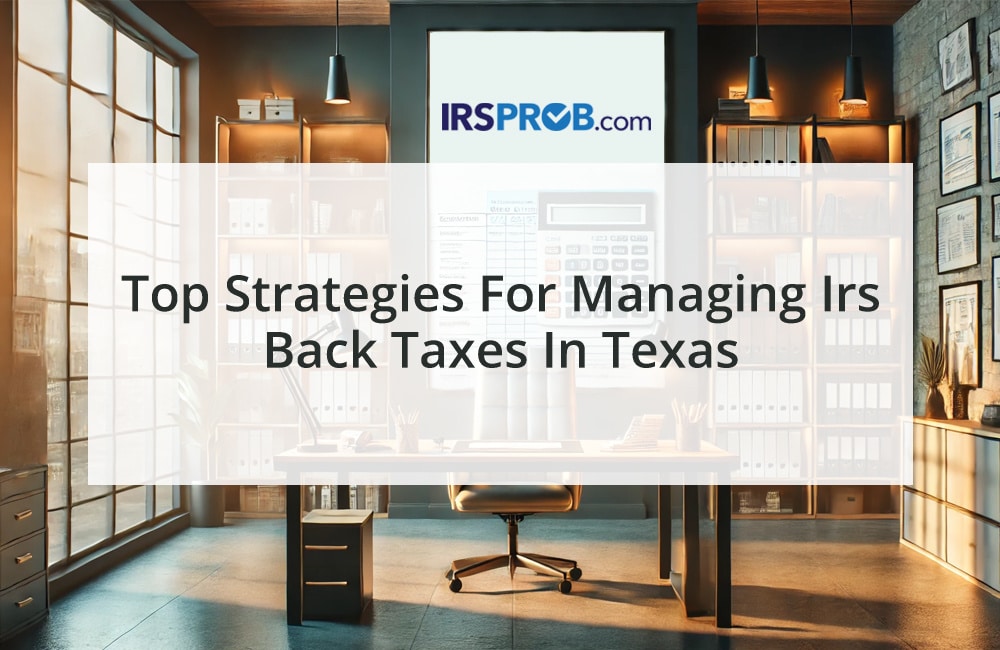Managing IRS back taxes in Texas can be one of the most stressful financial burdens individuals and businesses face. These tax debts can accumulate due to various reasons such as unfiled returns or underpayment. If you’re dealing with IRS back taxes in Texas, it’s crucial to know you’re not alone. Many Texans face this issue, and fortunately, there are effective strategies to help you navigate through it. Tackling the problem head-on might seem daunting, but with the proper guidance and approach, you can ease the financial strain and anxiety associated with it. Understanding your options is the first step towards resolving your back taxes with the IRS.
Understanding the Nature of IRS Back Taxes in Texas
IRS back taxes in Texas refer to taxes that haven’t been paid by the taxpayer within the time frame mandated by the Internal Revenue Service (IRS). This can result from a variety of situations, such as failing to file a tax return altogether, underreporting income, or simply not paying the full amount owed. For instance, a small business owner in Houston might overlook deadlines, leading to accumulated back taxes. Alternatively, a self-employed freelancer in Austin may miscalculate taxes, leaving a significant amount unpaid. Understanding that this is a common problem can help reduce the stigma and encourage individuals to seek solutions sooner rather than later.
The Significance of Addressing IRS Back Taxes in Texas
-
Imagine losing your house due to unpaid taxes—not only is this the stuff of nightmares, but IRS back taxes in Texas can have severe consequences such as liens, or even foreclosure. It’s important to address these debts swiftly to prevent losing valuable assets.
-
For businesses, failing to resolve back taxes can lead to hefty penalties which, over time, can cripple your company financially and reputationally. This could mean laying off employees or shutting down operations altogether.
-
Ignoring back taxes could lead to wage garnishment, where a portion of your income is directly diverted to the IRS, causing significant monthly financial strain. Knowing the repercussions demonstrates why proactive management is key.
Steps Through the IRS Back Taxes Process in Texas
-
The first step involves identifying the total amount you owe in back taxes, which can be done by contacting the IRS directly or reviewing your filed returns.
-
Next, gather all necessary documentation including W-2s, 1099s, and any previous communications with the IRS. This will help in negotiating or arranging a plan.
-
Finally, explore payment solutions, from installment agreements to offers in compromise. Seeking professional advice can simplify and expedite this process significantly.
Expert Tips for Handling IRS Back Taxes in Texas Efficiently
Common Questions People Have About IRS Back Taxes in Texas
How IRSProb Assists Individuals and Businesses
IRSProb helps clients navigate the complex landscape of resolving IRS back taxes in Texas. With extensive knowledge and experience, they tailor solutions to fit individual client needs, whether that involves negotiations, settlements, or representation. By handling the complexities of the IRS on behalf of their clients, IRSProb provides peace of mind and helps individuals and businesses focus on what truly matters—growing and sustaining success without the looming worry of tax debts. Their support not only eases the financial burden but also serves to protect clients’ futures.
Essential Points to Remember About IRS Back Taxes in Texas






